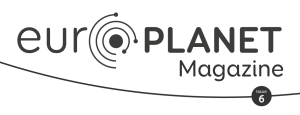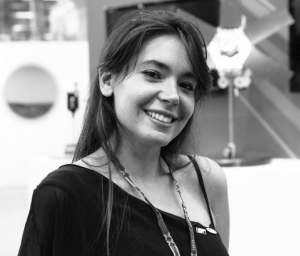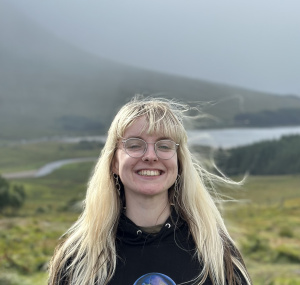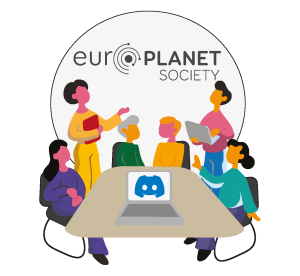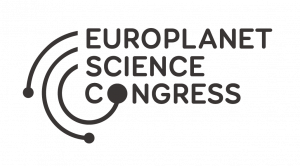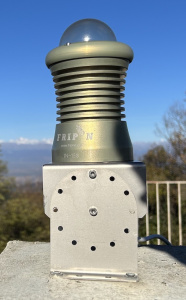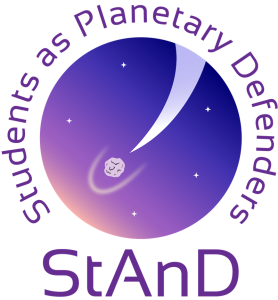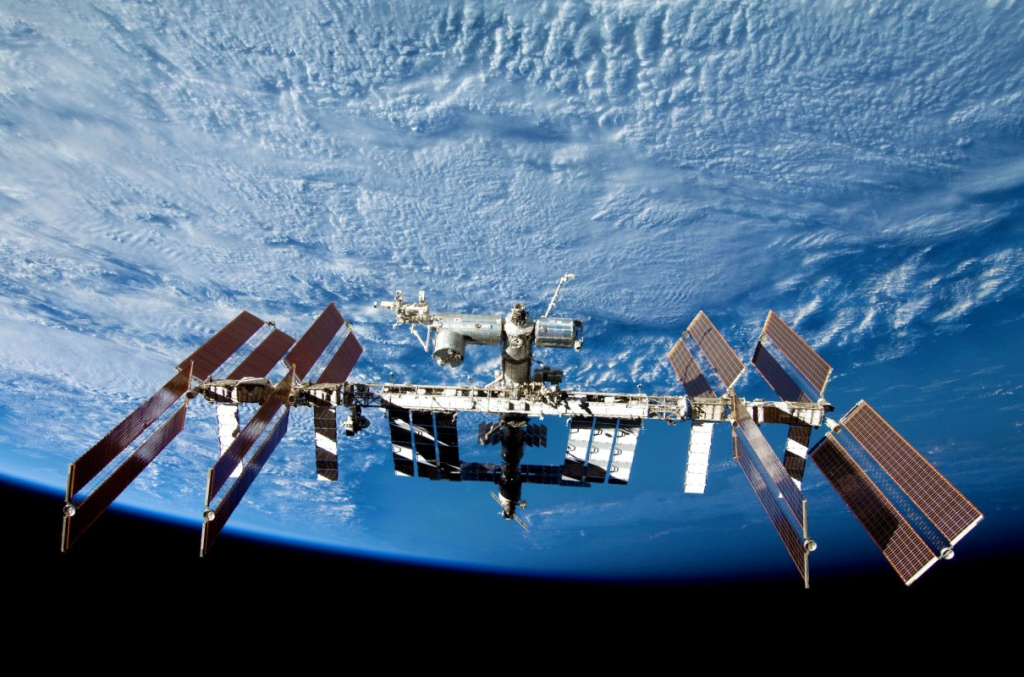
The last few months has been a time of change and revitalisation in the Europlanet Community. ‘In Focus’ gives a digest of recent news and events.
Europlanet News | Community News
New Board Members of the Europlanet Society
Read article in the fully formatted PDF of the Europlanet Magazine.
The results of the elections of the Europlanet Society Executive Board were announced at the Europlanet General Assembly on Friday 10 November 2023.
Eight members of the Board were elected, including Julia de León, Leigh Fletcher, Livia Giacomini, Melissa Mirino and Luca Montabone. Stavro Ivanovski was elected Vice- President, and Edita Stonkutė and Federica Duras will share the role of Secretary.


The current board also includes Ann Carine Vandaele, who takes up the mantle of President following her year as President-Elect (elected 2022), Treasurer Didier Moreau (elected 2021) and Vice President Angelo Pio Rossi (elected 2019 with a one year extended term to ensure that the turn-over of the Board is staggered).
Find out more about the new Board members in this month’s Planetary Perspectives.

Meet the New EPEC Co-Chairs
Read article in the fully formatted PDF of the Europlanet Magazine.
Melissa Mirino and Jessica (Jessie) Hogan have been elected as the Co- Chairs of the Europlanet Early Career (EPEC) Network.
Melissa is currently starting a second postdoctoral position at the Institute for Space Astrophysics and Planetology (INAF-IAPS) in Rome, where she is supporting the Juno mission and the characterisation of Jupiter’s moons. She was previously at the University of Padova, where she worked on the BepiColombo mission and characterising candidate sources of late volcanism on Mercury. She obtained her PhD at the Open University, UK, where she studied ancient river systems on Mars. In 2017 she took part in an internship at ESA’s ESTEC facility to work with both radar and spectral data from the North Polar Cap on Mars. She has led the EPEC Communications Working Group since 2020, organising and managing activities such as the ‘EPEC Profiles’, the ‘#PlanetaryScience4All video contest’ and the EPEC Podcast ‘Stairway to Space’. As Co-Chair of EPEC, and a new member of the Europlanet Executive Board, she looks forward to making sure the early career voice is heard in the Society.
Jessie is a PhD candidate in astrobiology at The Open University, UK, working on signatures of organic-salt ice interactions on Enceladus. She graduated with a BSc in Planetary Science with Astronomy from Birkbeck, University of London in 2021. Her interest in astrobiology influenced her to choose a final dissertation on the habitable zone modelling of exoplanets. Following her studies, she secured an internship with ESA in Madrid, Spain, where she studied the icy surface of Enceladus by analysing Cassini data and modelling photometric parameters. Inspired by the astrobiological significance of Enceladus and other icy bodies, she is continuing to build on her existing research with her current PhD. As Co-Chair of EPEC, Jessie looks forward to supporting early careers and improving youth access to education.

Join the Conversation on Discord!
Read article in the fully formatted PDF of the Europlanet Magazine.
Join the Europlanet Society Discord server to connect with other members of the Society and keep up to date with community news, events, job opportunities and much more! Download the Discord App to your computer and/or phone and join via the link below. You will receive a welcome message with tips and information on using Discord. The server is designed with a variety of channels to facilitate discussions and interactions, including text channels, discussion forums and voice channels. You can select roles to tailor your experience and access specific channels that match your involvement in the Society, so you can join the conversation on EPEC, Regional Hubs, Outreach, or whichever Europlanet services interest you. You can also join our weekly Friday lunchtime get-togethers on the ‘Io’ voice channel for informal chat and topical discussions.
Join Europlanet and join the conversation on Discord.

Read article in the fully formatted PDF of the Europlanet Magazine.
DPS-EPSC Joint Meeting 2023
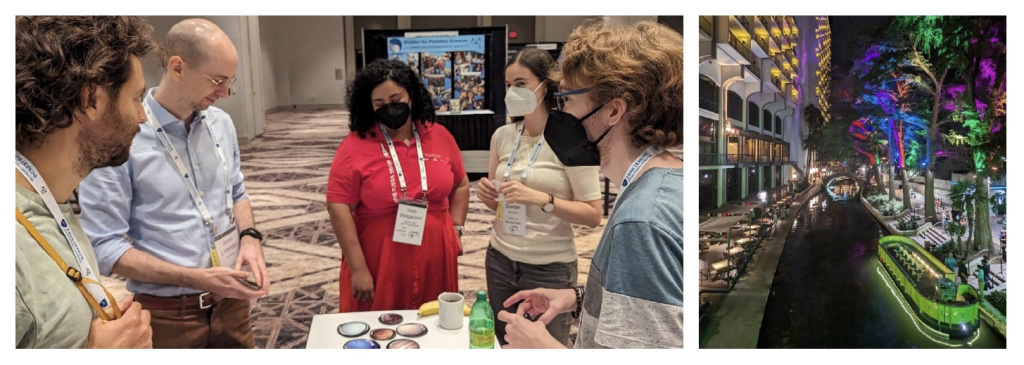
The 2023 Europlanet Science Congress (EPSC) took place together with the American Astronomical Society’s Division for Planetary Sciences (DPS) in San Antonio, Texas, from 1-6 October 2023, in hybrid format. A quarter of the 918 DPS-EPSC 2023 participants were from Europe. The programme was co-organised jointly by DPS and EPSC committee members and included keynote lectures, an Agency Town Hall, and many other events involving both US and European speakers.
The joint meeting offered opportunities to try out some new approaches for EPSC. Oral sessions, which comprised in-person and live online contributions, were organised with back-to-back blocks of talks interspersed by panel discussions with the speakers. The poster hall included large format displays by in-person presenters, as well as smaller-scale printouts of virtual posters, which were also uploaded to the Gathertown platform. The poster hall included a stage for lightning talks by poster presenters, as well as a Gathertown terminal for interactions with virtual participants. Lessons learned through the DPS-EPSC experience with a hybrid meeting will feed into the organisation of future events, starting with EPSC 2024 in Berlin, Germany, and the EPSC-DPS 2025 Joint Meeting in Helsinki, Finland.

EPSC in Berlin and Beyond!
Read article in the fully formatted PDF of the Europlanet Magazine.
EPSC is the major European meeting on planetary science, regularly attracting 1000-1200 participants from around the world, and is the annual meeting of the Europlanet Society. In 2024, the meeting will be hosted by the Freie Universität Berlin, Germany, 8–13 September 2024. The call for abstracts will run from 21 March to 15 May and registrations will open in the spring.
The Europlanet Society is now looking for hosts for its annual meetings in 2026 and 2027.
EPSC 2026 and 2027 should be hosted in a European city and led by a motivated and capable Local Organising Committee (LOC) with close links to the local planetary science community. The proposed venue should be able to accommodate at least 1200 participants onsite and offer options to allow hybrid access for virtual participation.
Are you interested in hosting an EPSC meeting in 2026 or 2027? The call for proposals is now open, with a closing date of 15 May 2024. For more information, see the application pack on the call page.

GMAP Winter School
Read article in the fully formatted PDF of the Europlanet Magazine.

The annual Geology and Planetary Mapping Winter School aims to introduce scientists and amateur enthusiasts to geological mapping of other planetary bodies. Now in its fourth edition, the 2024 school ran synchronously (with live sessions) in the week 22-26 January 2024, and asynchronously (allowing participants to work at their own pace) on the Streavent platform until the end of February 2024. The focus of this year’s school was geologic mapping aspects of Venus, Icy Satellites and Small Bodies. The programme was largely hands-on, with the inclusion of seminars and time for asynchronous interaction and individual or project mapping work. The school attracted more than 590 registrations from 75 countries around the world.
Each planetary body was introduced, with participants guided through hands-on activities such as the individual completion of a small mapping area. At the end of each day, specific time slots were dedicated to seminars, which provided insights, perspectives, and additional knowledge on related topics. The event was co-funded by the Europlanet 2024 Research Infrastructure (RI) project’s GMAP teams at the University of Padova and Constructor University.
All materials and videos from the 2021-2024 editions of the Winter School are freely available at:
https://www.planetarymapping.eu

Europlanet at Space Tech Expo Europe
Read article in the fully formatted PDF of the Europlanet Magazine.
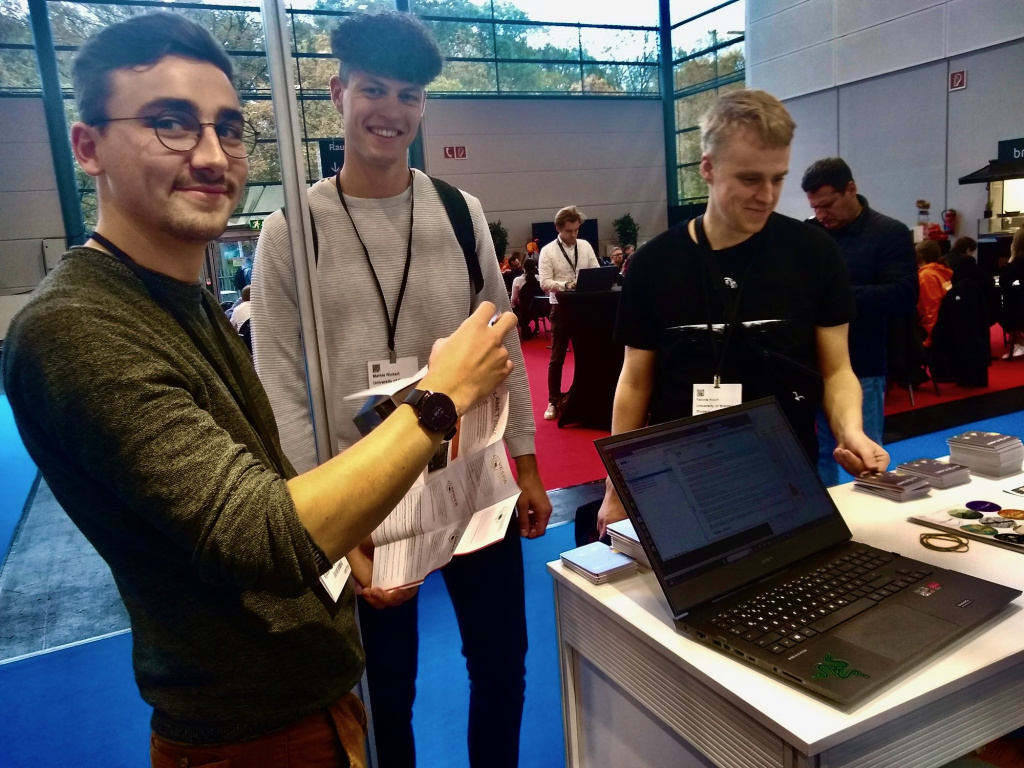
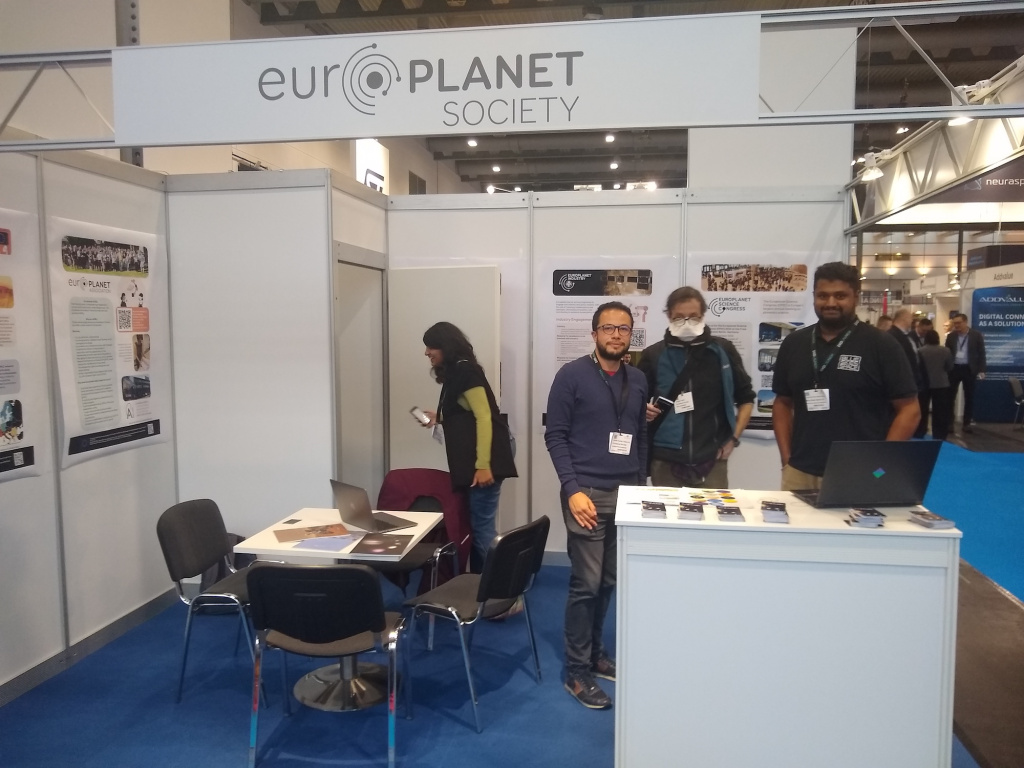
Last autumn, the Europlanet Society participated for the first time in Space Tech Expo Europe, which took place in Bremen, Germany, from 14-16 November 2023. Taking part in Europe’s largest business-to-business event for the space industry was an opportunity for the Society not only to strengthen its presence on the European space scene but also to highlight its commitment to innovation and technological development in the planetary exploration sector. Space Tech Expo Europe proved an effective platform for the Europlanet Society to showcase its achievements, share knowledge and establish strategic partnerships with other key players in the space industry. During the event, the team organised eleven business-to-business sessions, and gave eighty-one presentations at the stand to share know-how with participants. The Society also took the opportunity to unveil its new sustainability project: the Europlanet Association (see The Last Word). Europlanet’s presence at Space Tech Expo Europe was a great success, highlighting the Society’s continued commitment to planetary science, exploration, exploitation and space innovation. This participation marks the start of a new era for Europlanet’s industry engagement, opening the way to new opportunities, partnerships and achievements in the field of European planetary exploration and beyond.
Find out more about Europlanet industry activities

European Space Weather Week 2023
Read article in the fully formatted PDF of the Europlanet Magazine.
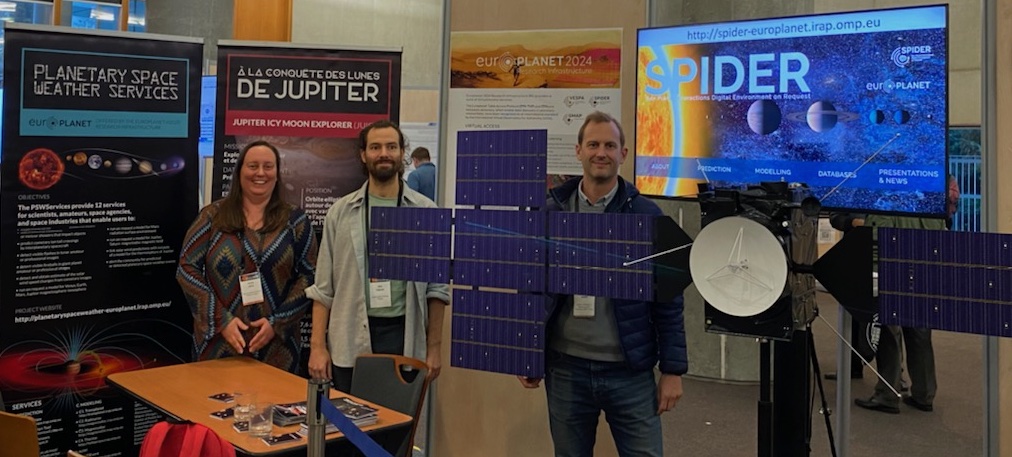
More than 600 members of the space weather and space climate community gathered in Toulouse (France) for the European Space Weather Week (ESWW) from 20-24 November 2023. The programme for the annual conference included topics across the spectrum from the Sun to the planets, with a large focus on the Earth. ESWW 2023 also hosted several platforms to exchange knowledge and ideas, besides plenary and parallel scientific sessions, with topical discussion meetings, tutorials, and a dedicated exhibition area.
The Sun Planets Interactions Digital Environment on Request (SPIDER) activity of the Europlanet 2024 RI project contributed during ESWW with a dedicated booth in a busy part of the exhibition. The 1:10 scale model of the JUICE spacecraft attracted many participants and the 3D-printed globes of Jupiter’s moons were also a great success. At the booth, the SPIDER team had the opportunity to directly meet the community and tell them about SPIDER’s services for modelling planetary environments and solar wind interactions. The team also organised a topical discussion meeting about ‘Planetary Space Weather’ with more than 40 participants. Feedback, comments, and suggestions from the audience emphasised the need for dedicated models to support future planetary missions beyond BepiColombo and JUICE, in particular missions to the Moon and Mars.
Find out more about SPIDER

First Europlanet Latin America Workshop
Read article in the fully formatted PDF of the Europlanet Magazine.
The first Europlanet Latin America Planetary Science Workshop, ‘Connecting Earth with other Planets’, was held in Buenos Aires from 31 October – 03 November 2023. The workshop was attended by 30 in-person participants, with 30-60 online participants joining at times during the programme. Theoretical and practical training was provided on how Earth-based analogues can be used to understand extraterrestrial environments. Speakers were drawn from universities across Latin America and the Europlanet community, as well as the Argentinian national space agency (CONAE) and the European Space Agency (ESA). The workshop, organised through the Europlanet 2024 RI project, stimulated many discussions and proved a very useful opportunity for networking and connecting local communities. It was followed up by a successful workshop in Bolivia from 6-9 February 2024.

Europlanet Committee Funding Scheme Results 2023
Read article in the fully formatted PDF of the Europlanet Magazine.
In 2023, the Europlanet Society awarded grants to support seven projects proposed by its Regional Hubs, Committees and Working Groups.
Orionids 2023 (€1400)
The Central Europe Hub was awarded funding for the ‘Orionids 2023’ meteor astronomy camp in Banská Štiavnica, central Slovakia (see article). The programme included a mix of theoretical and practical training on how to observe meteor showers and submit the results in the International Meteor Organization (IMO) database.
Pro-Am occultation campaigns with a portable telescope (€3300)
The Spain-Portugal Hub secured funding for the Sociedad Astronómica Granadina (SAG) to acquire a portable telescope to obtain occultation data of stars. The SAG amateur astronomy group collaborates in dozens of different Pro-Am occultation campaigns, in particular those involving trans-neptunian objects, Jupiter trojans and Near Earth Objects (NEOs).
The new telescope will enable SAG to continue and improve collaborations with professional colleagues and to obtain occultation data of fainter stars.
Careers workshop at French Planetary Science Congress (€4900)
The France Hub has been awarded funding to support a one-day workshop devoted to early career researchers. The event will form part of the French planetary science congress ‘ORIGINS – From Planets to Life’, which will be held in Nantes in July 2024 conjointly with the French Astrobiology Society (SFE) and National Programme for Planetary Science (PNP). The Europlanet-funded workshop will focus on careers in planetary science, with a programme that includes talks from industry and academia about potential career paths, and practical training on writing CVs, research grants.
EPEC: Early Career Activities at DPS-EPSC 2023 (€900)
EPEC organised events for early career researchers at the joint DPS-EPSC meeting in October 2023 in San Antonio, Texas, including a booth, courses, social events and a mentoring programme (see article).
Terrestrial Analogues for Solar System Studies Conference (€5000)
Co-funding has been awarded through the South East Europe Hub for the Terrestrial Analogues for Solar System Studies Conference in June 2024. The host venue – the Greek island of Milos – is highly relevant to planetary geology, as it has experienced young volcanism and tectonism (as seen on Mars and Pluto), has undergone atmospheric shaping of volcanic deposits, and carving into yardangs (Mars, Titan, Venus, Pluto), and has current hydrothermal and fumarolic activity (Venus, Io, exoplanets). The conference will offer a combination of lectures, science discussions and field trips, as well as dedicated policy and industry discussions.
Variable stars and exoplanet research meeting (€3060)
Funding to develop international participation in the Czech Variable Stars Meeting has been awarded through the Central Europe Hub. The meeting has a long history, with the 56th edition planned for 2024. In recent years it has been organised in hybrid format to support international collaboration. The Europlanet funding is helping to broaden the scope of the meeting by advertising the meeting on the European level, providing travel bursaries and supporting translation.
BPSC 2024 (€4380)
Europlanet has awarded funding through the Ireland-UK Hub to support early career events at the British Planetary Science Conference (BPSC) 2024, which will be held in Leicester in June. The conference will start with a one-day workshop for early careers on the development of space instrumentation and missions. The main conference will also have an emphasis on careers and equality, diversity and inclusion (EDI) and will include a community consultation day with stakeholders.

Community News

Students as Planetary Defenders
Read article in the fully formatted PDF of the Europlanet Magazine.
StudenTs As plaNetary Defenders (StAnD) is an ambitious education project to involve school children in the search for asteroids and meteorites.
Launched in November 2023, the 36-month Erasmus+ programme will bring activities and experiments into the classroom that will enable students to follow the journey of these cosmic visitors from the depths of space to our planet. Schools will receive a specially designed kit for micrometeorite hunting, and some schools will even have meteor detection cameras installed, offering the potential of contributing to discoveries of new asteroids and meteorite falls.
Teachers will receive training and support via massive open online courses and summer schools. They will also receive training on how to use robotic telescopes, operate and interpret meteor images acquired by camera systems, and collect and identify micrometeorite samples. StAnD is coordinated by INAF (Italy), with the active participation of COSPAR (France), NUCLIO (Portugal), Ellinogermaniki Agogi (Greece) and FTP-Europlanet (Germany).
For more information and updates on how the project develops, see projectstand.eu

Blink of a Star
Read article in the fully formatted PDF of the Europlanet Magazine.
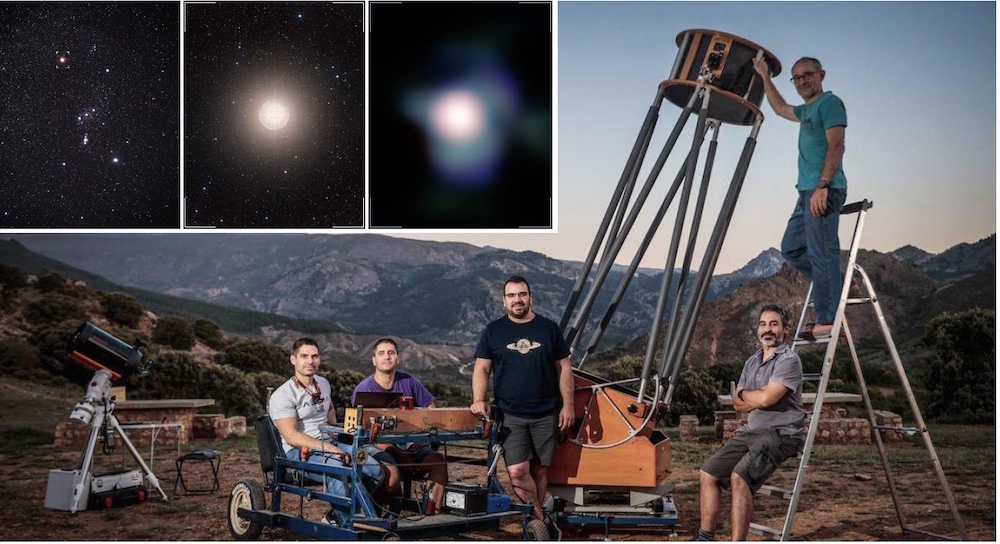
Observations of a Solar System body passing in front of a star (a phenomenon known as an ‘occultation’) can produce useful data about the object, such as its size, atmosphere, moons or rings, as well as about the occulted stars. On 12 December 2023, Asteroid (319) Leona, occulted Betelgeuse, a very bright star in the Orion constellation.
The extreme brightness of Betelgeuse means that features, such as its precise radius, are difficult to measure because cameras and instruments are quickly saturated. Because the angular diameter of Betelgeuse is very similar to that of Leona, the occultation gave a rare opportunity to study Betelgeuse with unprecedented spatial resolution. The phenomenon was visible with the naked eye in areas that fell under the shadow path of the occultation, which included Andalusia in Spain.
The Sociedad Astronómica Granadina (SAG), based in northern Andalusia, was awarded a grant by the Europlanet Public Engagement Funding Scheme 2023 for a citizen science project to highlight the event. An outreach campaign engaged the public, schools and amateur astronomers with the science behind occultations and encouraged as many people as possible to record the event using regular cameras and lenses. Submitted lightcurves – precise measurements of the dip in light as Betelgeuse was masked by Leona – are currently being analysed. The results of the citizen science project will complement professional observations of the event and, together, are expected to reveal new information about Betelgeuse that will be published in the next few months. starblink.org

Europlanet Prize for Public Engagement 2023
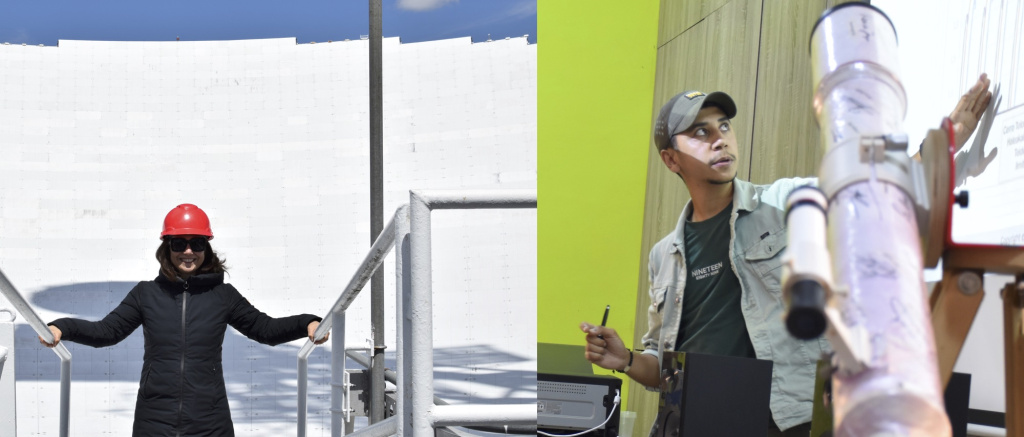
Read article in the fully formatted PDF of the Europlanet Magazine.
The 2023 Europlanet Prize for Public Engagement has been awarded jointly to the artist, Daniela de Paulis, for her interdisciplinary programmes to bring space and planetary science to international audiences, and the science communicator, El Mehdi Essaidi, for his community-centric work in southern Morocco to share the wonders of our Solar System and the Universe.
Daniela de Paulis is an interdisciplinary artist, whose installations and performances have a strong public engagement component. She has collaborated with astronomers and space scientists for many years and is currently a SETI Institute Artist-in-Residence (SETI AIR). Her latest project, ‘A Sign in Space’, invited people around the world to help decode a simulated message from an alien civilisation. The message was transmitted from Mars orbit on 24 May 2023 by the European Space Agency (ESA) mission, ExoMars Trace Gas Orbiter, and was received by three radio telescopes on Earth. The project reached people in 174 countries, with over 85,000 people viewing a livestream of the event and almost 5,000 people registering on the online platform Discord. The message was extracted from the raw signal data within less than 10 days; however the process is ongoing as people on Discord are now trying to decode and interpret the message. The design of the project required coordination with ESA, the Italian National Institute for Astrophysics (INAF), the US-based Green Bank Observatory, and the SETI Institute, as well as teams of radio astronomers, planetary scientists, engineers, communicators, artists, poets, philosophers, anthropologists and computer scientists, collaborating over different time zones for more than two years.
El Mehdi Essaidi, from the Asif n Ait Bounouh Association for Culture and Awareness in Ait Bounouh / Tafraoute, works to empower students and enhance science literacy in isolated and underserved communities in southern regions of Morocco. Through programmes that are tailored to the specific cultural contexts and local dialects, including astronomy workshops, hands-on experiments, story-telling, stargazing events, mentorship opportunities, and observational research projects, El Mehdi Essaidi has motivated young individuals to pursue their dreams in the field of astronomy. By engaging both children and adults, he aims to create a ripple effect that spreads scientific curiosity throughout the community, and provide a relatable role model who shares their language and cultural background. With his latest project, ‘Asif Stars’, he has enabled communities in Morocco to conduct observational research using the Las Cumbres Observatory telescope network.
Both Daniela and El Mehdi have been invited to deliver prize lectures at EPSC 2024 in Berlin.

Farinella Prize 2023
Read article in the fully formatted PDF of the Europlanet Magazine.
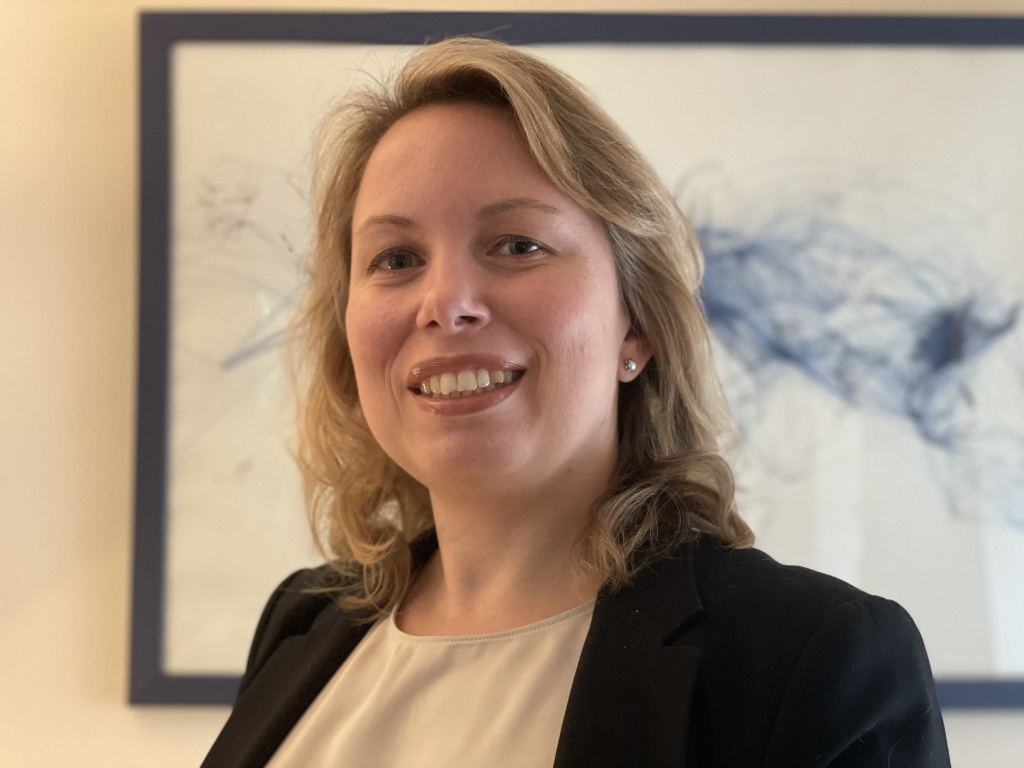
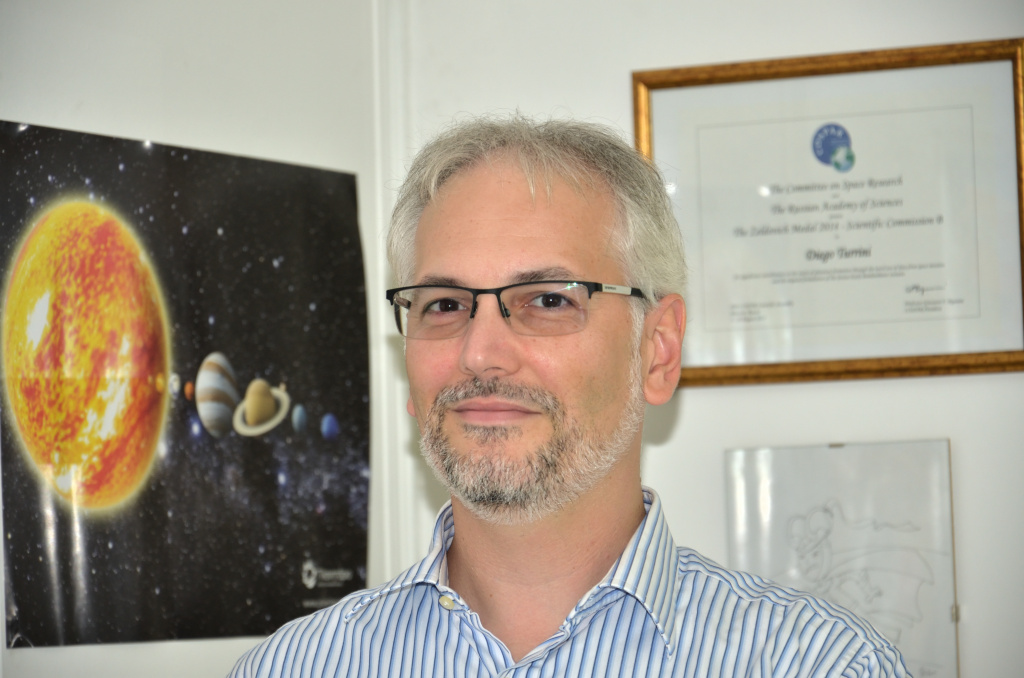
Dr Federica Spoto, of the Minor Planet Centre in Cambridge, Massachusetts, USA, and Dr Diego Turrini, of the Turin Astrophysical Observatory (INAF-OATo) in Italy, have been awarded jointly the 2023 Paolo Farinella Prize for their outstanding contributions to the field ‘From Superbolides to Meteorites: Physics and Dynamics of Small Planetary Impactors’. The award ceremony took place during the DPS-EPSC Joint Meeting 2023 and was followed by a prize lecture by each of the winners.
The annual prize was established in 2010 to honour the memory of the Italian scientist Paolo Farinella (1953-2000). Each year, the prize acknowledges an outstanding researcher not older than 47 years (the age of Prof Farinella when he passed away) who has achieved important results in one of Prof Farinella’s fields of work. Each edition of the prize focuses on a different research area and, in 2023, the topic was chosen to highlight recent advances in knowledge about small-size Near-Earth Object (NEO) populations. The award is supported by the Europlanet Society and EPSC.
bit.ly/Farinella2023

Polish Experiments to Fly on International Space Station
Read article in the fully formatted PDF of the Europlanet Magazine.
A call for Polish activities to fly on the International Space Station (ISS) was met with great interest from the scientific community and space private sector in Poland. A total of 66 concepts – an unexpectedly high number – were submitted following the announcement of opportunity by the European Space Agency (ESA) last August. All the proposed ideas complied with ESA’s recently adopted Science in Space Environment (SciSpacE) Strategy Roadmap. Following evaluation by ESA and the Polish Space Agency (POLSA), a preliminary list has been released of 18 experiments to be conducted by astronauts on the ISS in 2024-2025. The selected experiments address a wide range of scientific questions and technological solutions, including tests of medications for cancer, trials of mechanisms relevant to space mining, and investigations of sustainable food sources for space exploration.
In collaboration with ESA, POLSA has also initiated a competition, ‘Direction: Space’, for university students and PhD candidates. Both initiatives are connected with the upcoming flight of a Polish astronaut, planned for later this year, on the Axiom-4 mission

EXPLORE Apps for Lunar, Stellar and Galactic Research
Read article in the fully formatted PDF of the Europlanet Magazine.
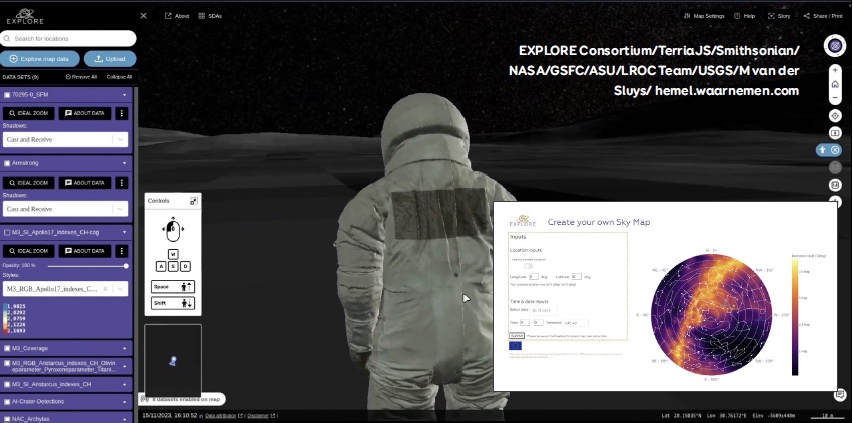
A new set of tools for planetary scientists and astronomers has been launched that use interactive visual analytics and machine learning to reveal and contrast properties of objects in our galaxy. The EXPLORE Scientific Data Applications are all open-source and are designed to help researchers investigate, annotate and work together on interesting results in a collaborative online environment.
EXPLORE, which has been developed with funding from the European Commission’s Horizon 2020 programme, is a close collaborator of the Europlanet 2024 Research Infrastructure (RI) project and a good example of how Europlanet can bring together academic and industrial partners. The lunar applications, L-Explo and L-Hex, allow users to navigate a 3D model of the Moon and upload, display and compare multiple datasets from lunar missions. Zooming in on a location, users can overlay basemaps with contours, visualisations at different wavelengths and spectral information on the mineralogy of the surface. Pre-trained deep learning models help identify craters and map features. A ‘pedestrian view’ enables users to visualise themselves standing and moving around the lunar surface through digital elevation models.
Tools for stellar research are designed to investigate the properties of stars in the Milky Way observed by the European Space Agency’s Gaia mission and in other large databases. S-Disco assigns a weirdness score to spectral data that can help astronomers find unusual stars, or groupings that have similar characteristics, within a population of a million stars. S-Phot compares the brightness of stars at different wavelengths to reveal information on the temperature, age, size and amount of energy stars produce.
G-Arch allows users to estimate chemical and physical parameters of stars by matching Gaia data with theoretical spectra. Finally, G-Tomo enables users to look at dusty objects and the distribution of dust in the Milky Way in one, two or three dimensions. Slicing through the galaxy in any orientation can reveal where dust is densely clumped and where there are windows that offer potential sightlines to objects of interest. Interactive sky maps show how the dust band at the core of the Milky Way passes overhead through the day and night at any given location on Earth. Collectively, these applications can help unravel the composition of our galaxy and how it was built up. All applications, user manuals and video tutorials are now online at: explore-platform.eu.

